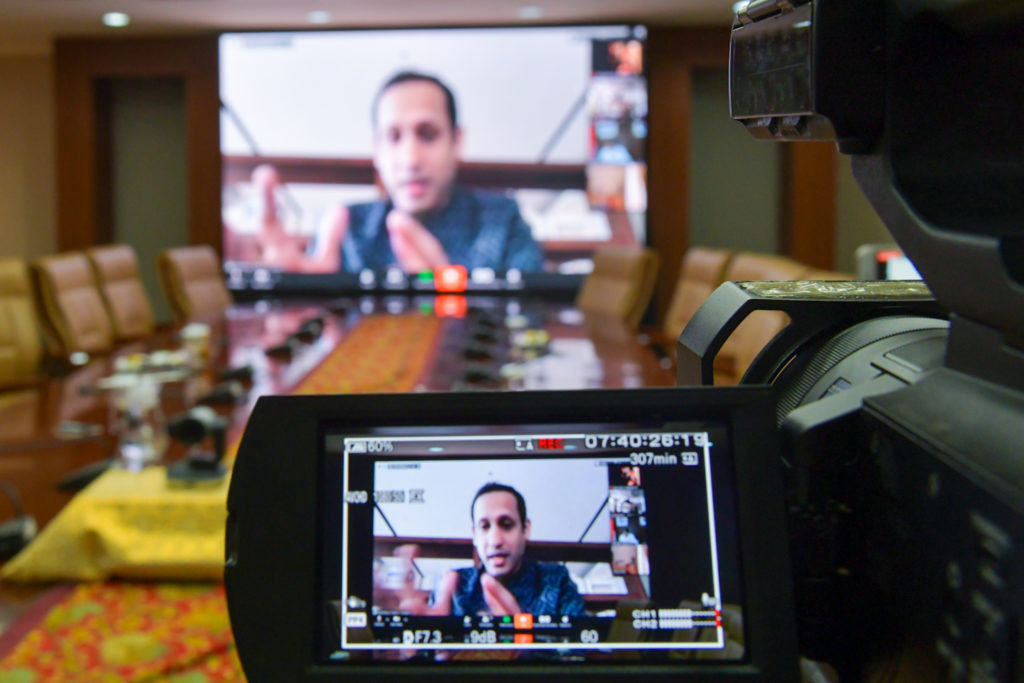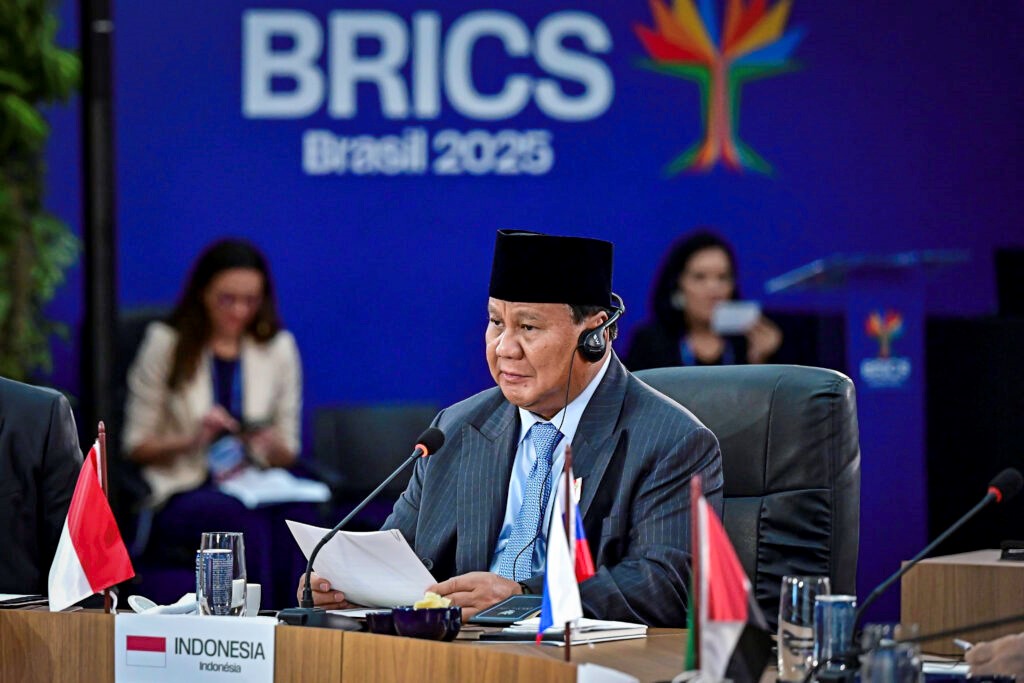Gov’t Formulates Strategies to Improve PISA Scores

Minister of Education and Culture Nadiem Makarim delivers his press statement through video conference after a Limited Cabinet Meeting, Friday (3/4). Photo by: PR/Ibrahim)
In a bid to improve the quality of learning outcomes, the Government has announced plan to prepare a comprehensive strategy in the education sector.
“Indonesia has participated in the Program for International Student Assessment (PISA) and our ranking has dropped significantly in several competency areas, including in reading literacy,” Minister of Education and Culture Nadiem Makarim told reporters through video conference after a Limited Cabinet Meeting, Friday (3/4).
According to the Minister, the Government steps up five measures to improve Indonesia’s PISA scores. They are as follows:
First, reformulating standard evaluation system.
“We will replace the National Exam with a minimum competency assessment to evaluate students’ literacy and numerical competence. This is similar to the PISA, but rather, it assess their mastery of words and numbers,” the Minister said, adding that since the PISA is only used to measure the ability of children aged 15, the Government will implement the minimum competency assessment to high school, junior school, and elementary school.
“The national exam uses local standards, while our new competency assessment uses international standards. The character and learning environment survey will also be used to measure non-cognitive aspects, including norms, morality, mental health, and students’ medical condition in every school,” Nadiem said.
Second, transforming school leadership that aims to ensure that a school leader or a school principal position is assumed by the best teachers in every region.
“The school leaders will be given flexibility and autonomy in the use of the budget. They also will be provided with technological facilities to reduce their administrative burdens, so that they can focus on mentoring teachers in their respective schools,” the Minister said.
Third, improving teacher education to produce new teachers with good quality.
“We will start the professional school teachers program (PPG) in various local and international institutions to create high-quality teachers since teachers’ development and their quality should be improved,” the Minister said.
The Government, Nadiem added, will also ensure that the existing teacher training is not only theoretical, but it is practical skills learning.
“They should not only better in a seminar or in a PowerPoint presentation, but should also be better in the interaction between teachers and in the classroom, observation, and feedback,” Nadiem added.
Fourth, transforming a flexible curriculum that is adjustable to the needs and learning progress of each student.
“Due to rigid syllabus and teaching policies, many teachers cannot teach a curriculum that is suitable to the level of students’ ability,” Nadiem sid.
Nadiem also said that it is too difficult for students to follow the learning system so the curriculum should be simplified, more flexible, and oriented to competence, as well as supported by online tool kits that will assist students personalize learning.
“Therefore, students with different levels of ability will receive different homework or different projects,” Nadiem said.
Fifth, transforming educational partnerships. The Government, according to Nadiem, will improve cooperation with regional governments and various organizations.
“We believe that public participation and various organizations in the education field and non-profit, and several companies in education technologies will improve learning outcomes quality,” the Minister said.
Translated by: Syarifah Aisyah
Reviewed by: M. Ersan Pamungkas








